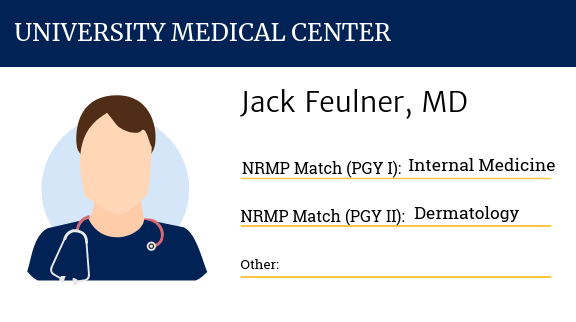NRMP Match Day: Significance to Medicare Reimbursement

February 20, 2019
On March 15th, fourth-year medical students across the nation will gather for NRMP Match ceremonies — a life-changing day for medical students and an important day in determining accurate Medicare Direct Graduate Medical Education (DGME) payments.
Residency program staff and GME offices have been equally preparing for this day and their work will continue after the NRMP match results are announced. They will be drafting contracts, compiling employment documentation, and entering valuable data into their residency management system for these new residents. The accuracy of the NRMP Match data entered into the residency management system directly impacts DGME Medicare payments.
How NRMP Match Results Assigns a Resident’s Initial Residency Period
When entering data into the residency management system, you must enter the NRMP Match results for each resident and include a document verifying the Match. This step is especially significant for residents who were simultaneously matched to a preliminary program for their first year of GME and a residency program for their second year of GME.
Many times, the initial residency period (IRP) of the preliminary program is shorter than the second-year program. Medicare regulations state:
If a hospital can document that a particular resident, prior to beginning the first year of residency training, matched in a specialty program for which training would begin at the conclusion of the first year of training, the resident’s initial residency period will be determined in the resident’s first year of training based on the period of board eligibility associated with the specialty program for which the resident matched for subsequent training year(s). (42 CFR § 413.79(a)(10))
The Impact of an Incorrect Initial Residency Program
When a resident is in a training year within the IRP, the weighting factor of the resident is 1, which allows the hospital to be reimbursed for the full FTE (full-time equivalent). When a resident is in a training year outside the IRP, the weighting factor of the resident is 0.5, which only allows the hospital to be reimbursed for half of the full FTE. Therefore, an error in identifying the correct IRP could cost the hospital thousands of dollars in its Medicare DGME payments.
Consider the following example:

If the teaching hospital does not record in the residency management system that Dr. Feulner matched to a year in Internal Medicine and then to the Dermatology residency program, his IRP will be based on the Internal Medicine program. During his last year of Dermatology residency training, year four, the hospital will only receive half of the DGME payment for his training, because he will be considered training outside his IRP. Instead, the teaching hospital should have indicated in the residency management system that Dr. Feulner simultaneously matched into the Dermatology program. If this was done properly, during his fourth year of GME, the hospital will receive full DGME payment for his training.
Ensure Accurate DGME Payments
In order to receive accurate DGME Medicare
If you are concerned your hospital may have prematurely weighted residents and would like GME Solutions to conduct a review of all reopenable cost reports, please contact us by email or phone, 626-576-4333. We generally base our fees on contingency, therefore there are no upfront costs to your hospital.
About the Author:
Sarah Ottesen
626-656-8312
sarah@gmesolutions.com
